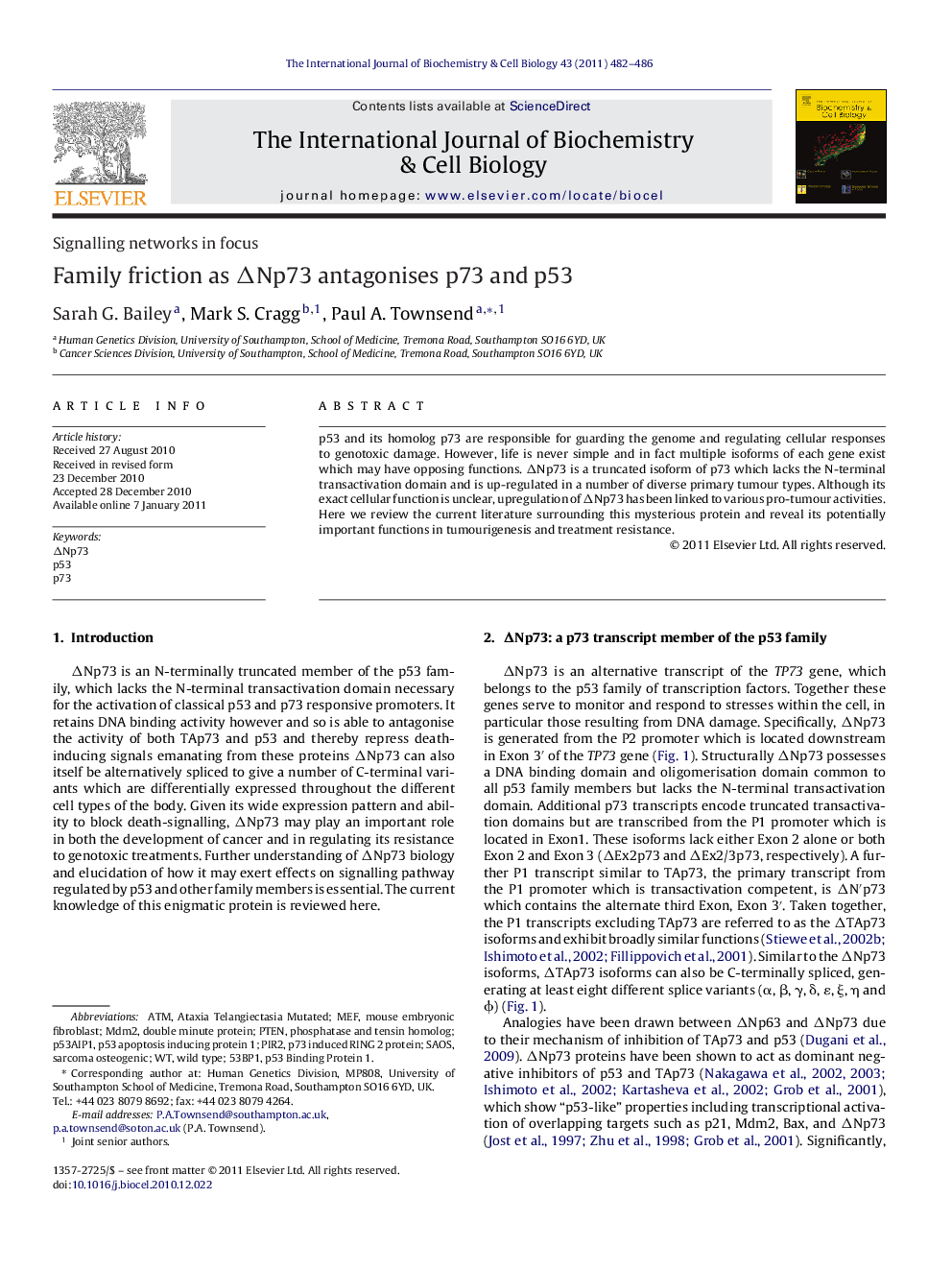| Article ID | Journal | Published Year | Pages | File Type |
|---|---|---|---|---|
| 1984119 | The International Journal of Biochemistry & Cell Biology | 2011 | 5 Pages |
p53 and its homolog p73 are responsible for guarding the genome and regulating cellular responses to genotoxic damage. However, life is never simple and in fact multiple isoforms of each gene exist which may have opposing functions. ΔNp73 is a truncated isoform of p73 which lacks the N-terminal transactivation domain and is up-regulated in a number of diverse primary tumour types. Although its exact cellular function is unclear, upregulation of ΔNp73 has been linked to various pro-tumour activities. Here we review the current literature surrounding this mysterious protein and reveal its potentially important functions in tumourigenesis and treatment resistance.
Research highlights► ΔNp73 expression is controlled by TAp73 and p53; forming a negative feedback whereby ΔNp73 can modulate the transactivation activity of these proteins. ► Possession of a truncated transactivation domain allows ΔNp73 to antagonise both p53 and TAp73 dependent transcription. ► ΔNp73 is specifically degraded in an antizyme-mediated process and through a PIR2 dependent signalling pathway. ► Additional information on p53 and its family members is available at http://p53.free.fr/index.html.
